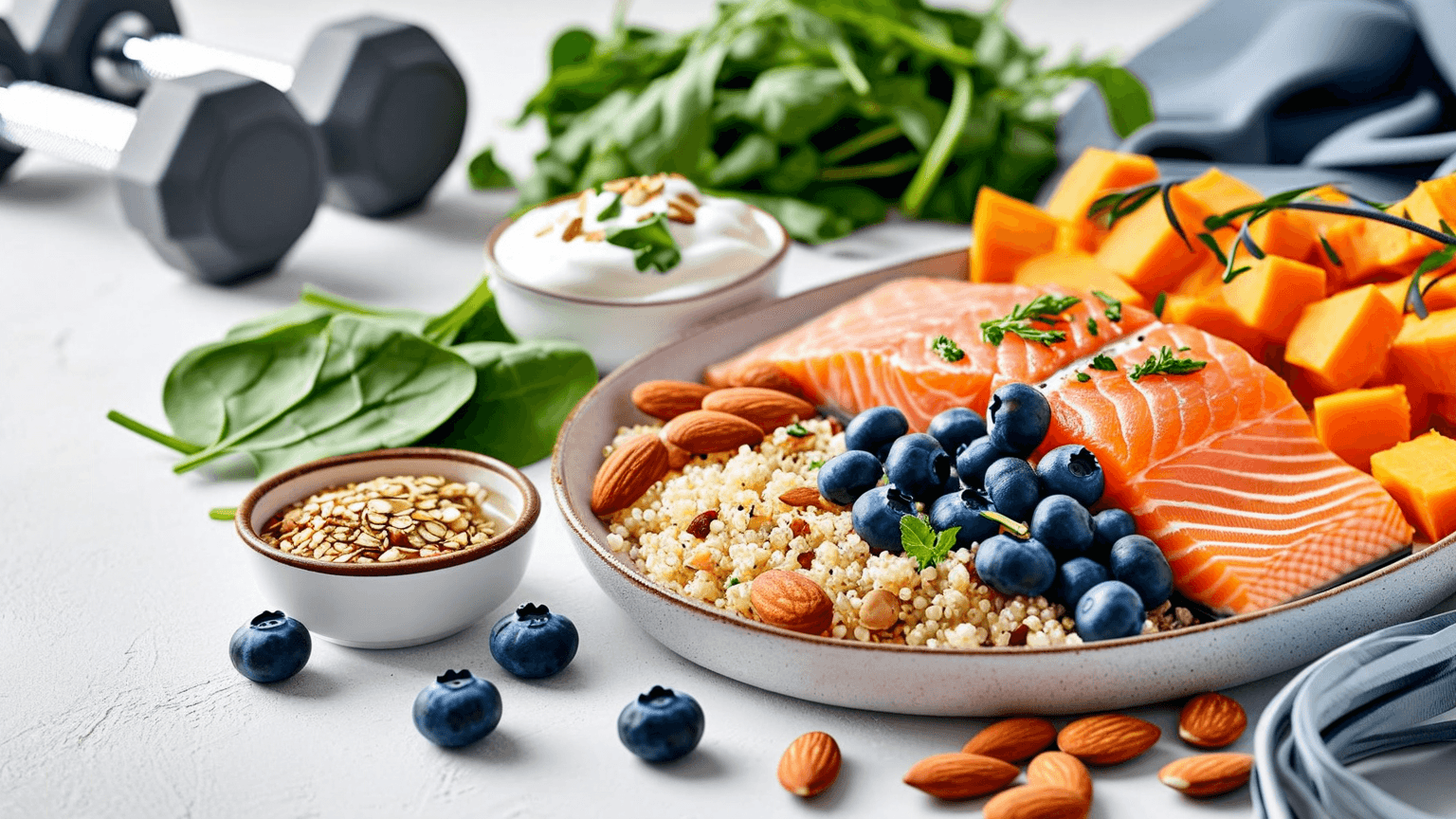Elite athletes and weekend warriors alike are discovering a purple powerhouse that's revolutionizing recovery: beetroot juice. This vibrant superfood doesn't just taste earthy—it fundamentally changes how your body uses oxygen during exercise and recovery.
Recent research reveals that beetroot juice can reduce oxygen cost by up to 19% during moderate-intensity exercise, while simultaneously accelerating post-workout recovery. The secret lies in naturally occurring nitrates that your body converts into performance-enhancing compounds.
The Science Behind Beetroot's Recovery Magic
Beetroot juice contains high concentrations of dietary nitrates, typically 300-400mg per 500ml serving. When you consume these nitrates, your body initiates a fascinating biochemical cascade:
- Nitrate to nitrite conversion: Beneficial bacteria in your mouth convert nitrates to nitrites
- Nitric oxide production: Your stomach acid transforms nitrites into nitric oxide
- Vascular enhancement: Nitric oxide dilates blood vessels, improving oxygen delivery
- Mitochondrial efficiency: Enhanced cellular energy production with less oxygen demand
This process peaks 2-3 hours after consumption, making timing crucial for optimal recovery benefits.
How Beetroot Juice Slashes Oxygen Cost
The oxygen cost reduction from beetroot juice occurs through multiple mechanisms that work synergistically:
Improved mitochondrial efficiency means your cellular powerhouses produce more ATP (energy) while consuming less oxygen. Studies show this efficiency gain ranges from 12-19% during submaximal exercise.
Enhanced blood flow delivers oxygen more effectively to working muscles. The vasodilation effect reduces the heart's workload, allowing for better oxygen distribution throughout your body.
Faster lactate clearance helps remove metabolic waste products that accumulate during intense exercise. This accelerated clearance reduces the oxygen debt typically required for recovery.
Research from the University of Exeter demonstrated that cyclists consuming beetroot juice required 19% less oxygen to maintain the same power output compared to placebo groups.
Optimal Timing for Maximum Recovery Benefits
Strategic timing transforms beetroot juice from a simple supplement into a recovery optimization tool:
Pre-workout protocol: Consume 500ml of beetroot juice 2-3 hours before exercise. This allows peak nitric oxide levels during your workout, reducing oxygen cost from the start.
Post-workout recovery: Drink 250ml within 30 minutes of finishing exercise. The continued nitric oxide production supports enhanced blood flow during the critical recovery window.
Multi-day loading: For competitions or intensive training blocks, consume beetroot juice daily for 3-6 days beforehand. This builds up tissue nitrate stores for sustained benefits.
Avoid mouthwash or chewing antibacterial gum for 3 hours after consumption, as these can disrupt the essential bacterial conversion of nitrates to nitrites.
Beetroot Juice vs Other Recovery Methods
Comparing beetroot juice to traditional recovery approaches reveals its unique advantages:
| Recovery Method | Oxygen Cost Reduction | Time to Effect | Duration |
|---|---|---|---|
| Beetroot Juice | 12-19% | 2-3 hours | 6-8 hours |
| Caffeine | 3-5% | 30-45 minutes | 3-4 hours |
| Cold Therapy | Variable | Immediate | 1-2 hours |
| Active Recovery | 8-12% | Immediate | During activity |
Unlike stimulants that can disrupt sleep or ice baths that may blunt adaptation, beetroot juice enhances recovery without negative side effects for most individuals.
Dosage and Preparation Guidelines
Maximizing beetroot juice recovery benefits requires attention to dosage, quality, and preparation:
Effective dosage: 300-500mg of nitrates, typically found in 500ml of fresh beetroot juice or 70ml of concentrated beetroot shots.
Quality considerations:
- Choose organic beetroot to minimize nitrate-blocking compounds
- Fresh juice contains higher nitrate levels than pasteurized versions
- Concentrated shots offer convenience with equivalent benefits
- Avoid added sugars that can interfere with nitric oxide production
Preparation tips: If juicing fresh beetroot, include the stems and leaves—they contain additional nitrates. Store fresh juice in dark, cool conditions and consume within 24 hours for maximum potency.
Real-World Recovery Applications
Athletes across disciplines are integrating beetroot juice into their recovery protocols with measurable results:
Endurance athletes report maintaining higher training volumes with less perceived fatigue. Marathon runners using beetroot juice show improved pace maintenance in the final miles of long runs.
Team sport athletes benefit from faster recovery between training sessions. Soccer players consuming beetroot juice demonstrate better performance in repeated sprint tests.
Strength athletes experience reduced fatigue between sets and improved workout quality. Powerlifters report maintaining strength levels throughout extended training sessions.
Recreational exercisers find they can increase workout frequency without excessive fatigue. Weekend warriors report feeling more energetic during and after exercise sessions.
Potential Side Effects and Considerations
While beetroot juice is generally safe, awareness of potential effects ensures optimal use:
Beeturia (pink or red urine) affects 10-14% of people and is harmless. This genetic variation in betalain metabolism doesn't impact the recovery benefits.
Digestive sensitivity may occur in some individuals, particularly with large doses. Start with smaller amounts (250ml) and gradually increase to assess tolerance.
Blood pressure considerations: The vasodilatory effects can lower blood pressure. Individuals on blood pressure medications should consult healthcare providers before regular use.
Kidney stone risk: Beetroot contains oxalates. Those with a history of calcium oxalate kidney stones should moderate consumption.
High-nitrate vegetables like spinach and arugula can complement beetroot juice for sustained nitric oxide production throughout the day.
Frequently Asked Questions
How quickly does beetroot juice improve recovery?
Acute benefits begin 2-3 hours after consumption and peak around 3-4 hours. For sustained recovery improvements, daily consumption for 3-5 days provides cumulative benefits through increased tissue nitrate stores.
Can I take beetroot juice with other supplements?
Beetroot juice combines well with most supplements. Avoid taking with antacids immediately, as stomach acid is necessary for nitrite conversion. Creatine, protein, and electrolyte supplements don't interfere with beetroot's benefits.
Is beetroot powder as effective as fresh juice?
High-quality beetroot powder can be equally effective if it contains equivalent nitrate levels (300-500mg). Check labels for nitrate content rather than just beetroot quantity, as processing can reduce potency.
How does beetroot juice affect different types of exercise?
Beetroot juice provides the greatest oxygen cost reduction during moderate-intensity, sustained exercise (60-80% max effort). Benefits are less pronounced during very high-intensity, short-duration activities but still support faster recovery between efforts.
Can I build tolerance to beetroot juice benefits?
Current research suggests no tolerance development to beetroot juice's recovery benefits. The nitrate-nitrite-nitric oxide pathway remains responsive to dietary nitrates even with regular consumption over months.
What's the best way to mask beetroot's earthy taste?
Mix beetroot juice with apple or orange juice in a 1:1 ratio. Adding ginger, lemon, or mint can improve palatability without compromising benefits. Avoid dairy, which may interfere with nitrate absorption.
Conclusion
Beetroot juice represents a scientifically-backed, natural approach to slashing oxygen cost and accelerating recovery. The 12-19% reduction in oxygen demand during exercise, combined with enhanced post-workout recovery, makes this purple powerhouse an invaluable addition to any training regimen.
Success with beetroot juice recovery depends on consistent timing, adequate dosage, and quality sourcing. Start with 500ml consumed 2-3 hours before exercise, and adjust based on your individual response and training demands.
The beauty of beetroot juice lies in its simplicity—no complex protocols or expensive equipment required. Just a natural, whole-food approach that works with your body's existing systems to optimize performance and recovery. Whether you're chasing personal records or simply want to feel better during and after exercise, beetroot juice offers a proven path to enhanced oxygen efficiency and faster recovery.
Related Topics
Explore more superfood insights and nutrition guidance.



